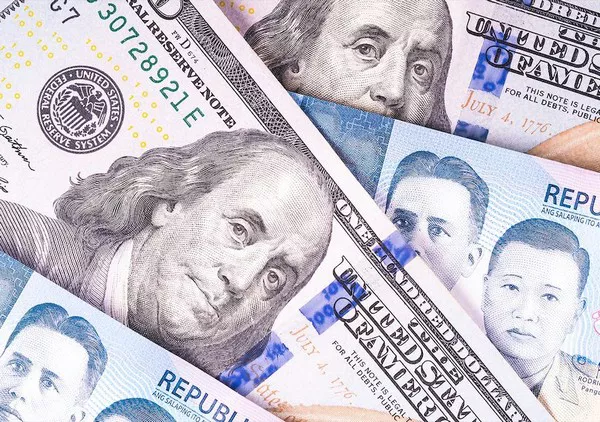The US dollar (USD) has long been the world’s dominant reserve currency, underpinning global trade and finance. Its stability and widespread acceptance make it a cornerstone of the global economic system. However, the hypothetical scenario of a USD collapse presents a complex tapestry of potential outcomes, affecting economies, markets, and everyday lives worldwide. This article delves into the multifaceted implications of such an event, exploring economic impacts, global trade shifts, investment landscapes, and societal consequences.
Economic Impacts
Inflation and Hyperinflation
A collapse of the USD would likely trigger severe inflationary pressures within the United States. As the value of the dollar plummets, the cost of imports would skyrocket, leading to a sharp increase in consumer prices. This inflation could spiral into hyperinflation if not managed effectively, eroding purchasing power and destabilizing the economy. The Federal Reserve would face immense challenges in controlling this inflationary spiral, potentially leading to drastic monetary policy measures.
Banking and Financial System Turmoil
The banking sector would face unprecedented stress in the wake of a USD collapse. With the dollar devaluing rapidly, banks would struggle to meet the demands of depositors seeking to withdraw their funds, leading to a potential run on banks. This financial turmoil could extend to credit markets, where the cost of borrowing would soar, severely constraining economic activity. Additionally, the interconnected nature of global finance means that these banking troubles would likely spread internationally, causing a ripple effect across other economies.
Shifts in Global Trade
Emergence of Alternative Currencies
In the event of a USD collapse, other currencies could rise in prominence as alternatives for global trade. The Euro, the Chinese Yuan, and even cryptocurrencies like Bitcoin might see increased adoption. Countries and corporations would seek stable mediums of exchange to mitigate the risks associated with a volatile dollar. This shift could lead to a more multipolar currency system, where no single currency dominates, thereby changing the dynamics of international trade agreements and economic alliances.
Redefinition of Trade Relationships
A devalued USD would alter the landscape of global trade. US exports would become cheaper and more competitive, potentially boosting certain sectors of the economy. However, imports would become prohibitively expensive, disrupting supply chains and increasing costs for businesses that rely on foreign goods. Countries heavily dependent on the US market might seek to diversify their trade partnerships, leading to a realignment of global trade relationships and economic dependencies.
Investment Landscape
Flight to Safe-Haven Assets
In response to a collapsing dollar, investors would likely seek refuge in safe-haven assets. Gold, traditionally viewed as a store of value, would see increased demand, driving its price upward. Similarly, other commodities like silver and oil might become attractive investment options. Real estate, particularly in stable regions, could also experience a surge in demand as investors look to protect their wealth from currency devaluation.
Stock Market Volatility
The stock market would experience significant volatility in the face of a USD collapse. Companies with heavy reliance on international supply chains would face increased costs, squeezing profit margins and affecting stock prices. Conversely, exporters might benefit from a weaker dollar, potentially boosting their market performance. Overall, the uncertainty and risk associated with a currency collapse would lead to heightened market fluctuations and a challenging environment for investors.
Societal Consequences
Changes in Living Standards
A collapsed USD would have profound effects on the living standards of Americans. The rapid increase in prices for goods and services would strain household budgets, particularly affecting lower and middle-income families. Essentials like food, healthcare, and housing would become more expensive, leading to increased poverty and social unrest. The government might need to implement social safety nets and economic relief programs to support the most vulnerable populations.
Impact on Employment
The labor market would undergo significant stress as businesses adapt to the new economic reality. Sectors reliant on imports, such as manufacturing and retail, might experience layoffs and downsizing due to rising costs. Conversely, industries focused on exports could see growth, potentially creating new job opportunities. However, the overall employment landscape would likely be marked by uncertainty and volatility, necessitating workforce retraining and adaptability.
Policy Responses and Long-Term Adjustments
Government Intervention
In the immediate aftermath of a USD collapse, robust government intervention would be crucial to stabilize the economy. This could include measures such as capital controls to prevent a mass exodus of funds, emergency loans to prop up banks, and aggressive monetary policy adjustments. Fiscal policies aimed at stimulating economic activity, such as infrastructure investment and tax relief, would also be essential to mitigate the worst impacts of the collapse.
Structural Economic Reforms
Long-term recovery from a USD collapse would require significant structural reforms. Diversifying the economic base to reduce dependency on imports and fostering innovation and competitiveness in various sectors would be key strategies. Strengthening domestic industries and investing in technology and education would help build a more resilient economy. Additionally, reforming financial regulations to prevent future crises and enhancing global economic cooperation would be important steps toward stability.
See also How Many Presidents Are On The Dollar Coin
Conclusion
A hypothetical collapse of the US dollar presents a daunting scenario with far-reaching consequences for the global economy. From inflation and banking turmoil to shifts in global trade and investment landscapes, the ripple effects would be profound and multifaceted. Policymakers, businesses, and individuals would need to navigate this complex environment with strategic foresight and adaptability. While the likelihood of such a collapse remains a topic of debate, understanding the potential impacts underscores the importance of maintaining economic stability and resilience in an increasingly interconnected world.


